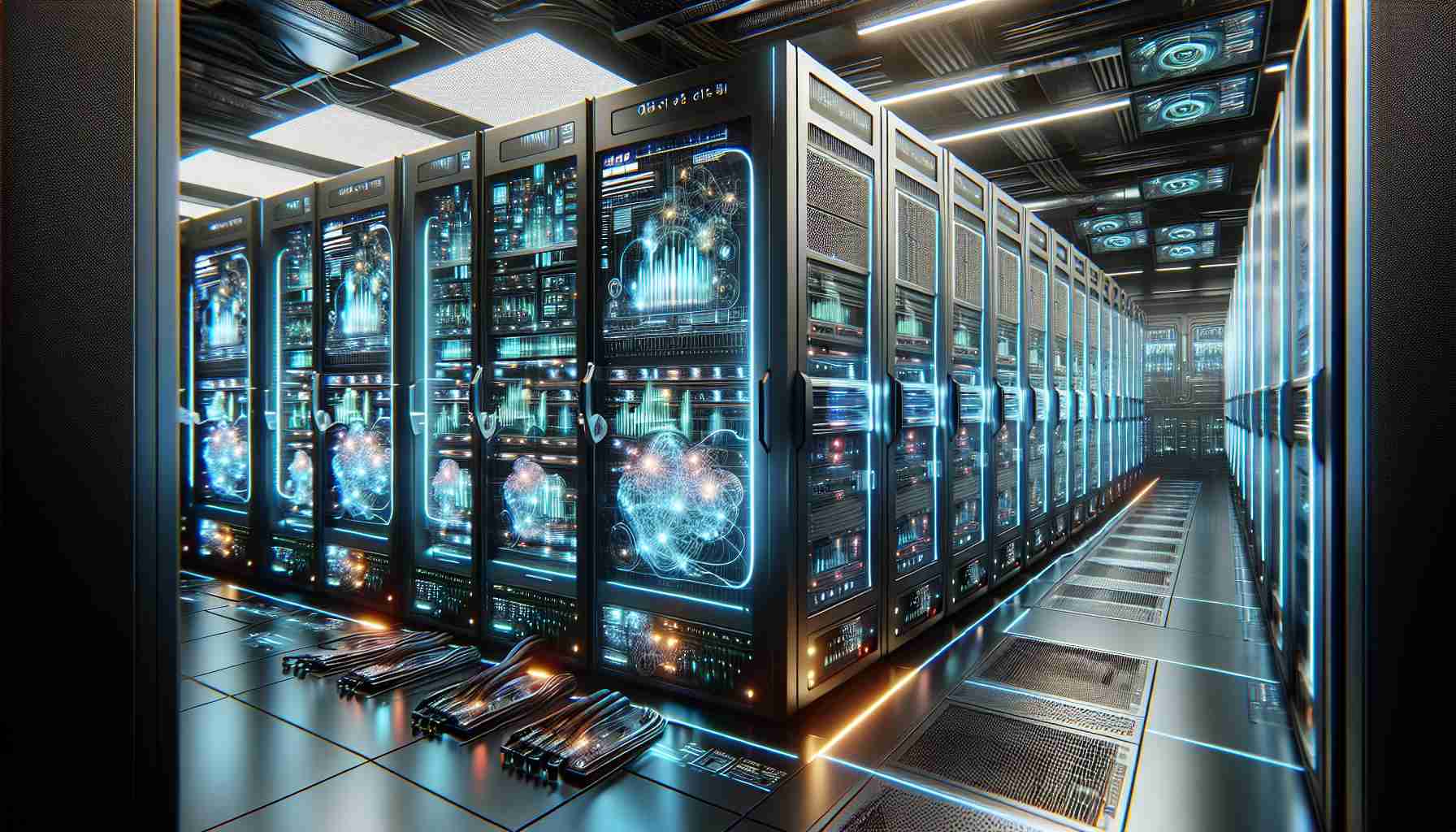ASUS has unveiled an exciting new series of servers that utilize the advanced AMD EPYC™ 9005-series processors, aligning with the increasing demands of AI-driven workloads in data centers. The lineup features high-performance models such as the ESC A8A-E12U and ESC8000A-E13P, which are optimized for robust parallel computing and flexible networking. These servers can handle large-scale AI model training by supporting multiple GPUs, enhancing computational capabilities significantly.
Introducing the RS520QA-E13, a scalable multi-node server, highlights superior performance. This model excels in electronic design automation and cloud computing, equipped with a high memory capacity that allows data-intensive tasks to achieve incredible speeds. Its innovative design prioritizes thermal efficiency and maintenance ease, making it perfect for demanding environments.
ASUS further broadens its offerings with general-purpose servers like the RS720A-E13 and RS700A-E13. These servers are tailored to manage diverse workloads effectively, showcasing impressive expandability and processing power. They stand out with their ability to support multiple all-flash NVMe drives, ensuring data is processed swiftly and accurately.
The introduction of these cutting-edge servers marks a significant step in ASUS’s commitment to innovation. By embracing the latest AMD technology, they provide versatile solutions that adapt seamlessly to modern data center needs, driving efficiency and performance in various applications across industries. This strategic enhancement in server architecture promises to empower businesses in an evolving digital landscape.
Revolutionary Advances in AI Server Technology: A Comprehensive Look
As digital transformation accelerates, server technology tailored for AI applications is becoming essential. The integration of advanced processors and specialized architectures in servers is redefining capabilities and efficiencies. This article examines the current landscape of AI server technology, raising important questions and addressing ongoing challenges.
What are the key innovations in AI server technology?
Recent innovations in AI server technology focus on the integration of specialized hardware like Tensor Processing Units (TPUs) and improved memory architecture. These innovations enable faster processing and lower latency for AI workloads, facilitating real-time data analysis and decision-making. Advanced cooling systems are also becoming commonplace to maintain optimal temperature in increasingly dense server configurations.
What challenges do AI servers face?
Despite significant advancements, the adoption of AI server technology encounters several challenges. One significant issue is the high cost associated with cutting-edge hardware, which may be a barrier for small and medium enterprises. Additionally, the rapid evolution of AI technologies creates a challenge for keeping server infrastructures updated, leading to concerns about obsolescence before return on investment is realized.
Are there controversies surrounding the deployment of AI servers?
A notable controversy relates to energy consumption and sustainability. The emergence of powerful AI servers typically correlates with increased energy usage, raising questions about environmental impact. As organizations strive to balance performance with sustainability, debates intensify around the carbon footprint of large-scale AI deployments.
Advantages and Disadvantages of AI Server Technology
Advantages:
1. High Performance: AI servers designed for specific workloads can vastly outperform general-purpose servers, leading to faster processing and reduced training times for models.
2. Scalability: Modern server architectures allow effortless scaling, enabling organizations to expand their computational capabilities as needs grow.
3. Enhanced Analytics: With advanced processing power, businesses can leverage more complex algorithms for deep learning, offering insights that can significantly improve decision-making.
Disadvantages:
1. Cost of Investment: The initial investment for AI-specific hardware can be substantial, which may deter some organizations from adopting these technologies.
2. Complexity of Management: The integration and management of advanced AI servers require specialized knowledge, leading to challenges in staffing and operational management.
3. Obsolescence Risks: Rapid advancements can make existing hardware outdated quickly, leading to increased costs for ongoing upgrades.
The Future of AI Server Technology
As we look forward, the evolution of AI server technology suggests profound implications for how data centers operate. Innovations in distributed computing, enhanced virtualization, and edge computing will play a critical role in the next generation of AI deployments.
In conclusion, while the advancements in AI server technology promise enhanced capabilities and efficiencies, organizations must navigate the accompanying challenges and consider the long-term implications of their investments.
For more information on advancements in server technology, visit ASUS.










